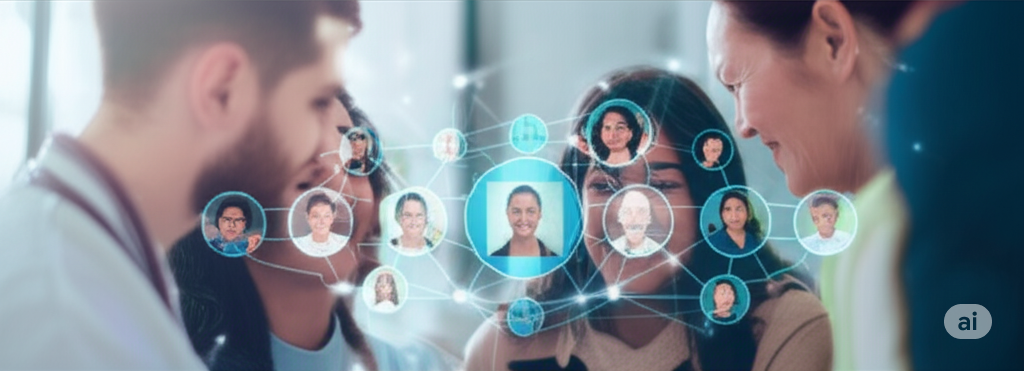We hear it everywhere: Artificial Intelligence is revolutionizing healthcare with predictive analytics, big data, and streamlined efficiency. It can help clinicians predict heart failure risk at the Mayo Clinic and even help identify undiagnosed rare diseases. The promise is immense.
But in this rush toward a data-driven future, it's easy to wonder if we're losing something essential. Are we forgetting the human touch?
For anyone who has ever felt lost in the healthcare maze, struggled to understand complex medical instructions, or felt disconnected from their own care plan, the idea of turning over more of that experience to an algorithm can be unsettling. The fear is that a focus on data will overshadow the need for empathy, turning patients from people into data points.
This creates what feels like a conflict: technology versus touch. But what if that’s the wrong way to look at it?
More Human, Not Less
The goal of AI in healthcare isn't to replace the compassionate provider but to empower them. Think of AI not as the new doctor, but as the ultimate "sidekick". Both patients and providers are often pressed for time, making it difficult to have the meaningful conversations that are core to building strong relationships. This is precisely where technology can bridge the gap, not widen it.
By letting AI handle the heavy lifting of data analysis, we free up our healthcare professionals to focus on what they do best: connect with patients.
Here’s how:
Giving Back the Gift of Time: Imagine an AI-powered chatbot that can instantly answer common questions about medications or an intelligent system that organizes a patient's entire medical history before an appointment. This automation handles the routine tasks, giving doctors back precious minutes to sit down, listen, and truly engage with their patients.
Powering Deeper, More Empathetic Conversations: Effective communication is often hindered by jargon-filled medical language and information overload. AI can deliver personalized, easy-to-understand information tailored to a patient’s specific condition and health literacy level. When a patient feels more informed, they are empowered to ask better questions and participate more actively in their care decisions. This transforms a one-way directive into a true collaboration.
The Power of a Connected Ecosystem
This human-centric approach works best when it's supported by a connected patient ecosystem. Effective care for any condition, especially a rare disease, involves a wide network of caregivers, specialists, advocacy groups, and digital health platforms.
AI can be the intelligent engine that unifies these different players, ensuring that every touchpoint adds value and that communication is seamless. When the entire care team has access to the same insights, the patient is surrounded by a network of support that is not only smarter but also more coordinated and empathetic.
Technology with a Human Core
AI is not a silver bullet, and challenges like data privacy and algorithmic bias must be addressed responsibly. However, when designed and implemented with a patient-first mentality, AI and empathy are not opposing forces. Technology has become a tool that enhances our ability to provide compassionate, effective, and personalized healthcare.
At Linked Patient Learning, we believe technology should bring us closer, not push us apart. We help organizations integrate AI and human insight to build ecosystems that value empathy as much as efficiency.
Ready to explore how to build a more connected and compassionate healthcare future?
